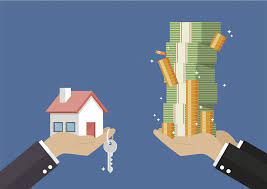
Every Homeowner who become to pay their mortgage payments on time, resort to online search to find answers to their dilemma “I m unable to pay my mortgage and need someone to help”. An online search might seem an effective and fast way to get the best help but staying educated about every move you make should be the trait of every smart homeowner.
In this post, we’ll try to answer all the frequently raised concerns regarding this respect. So, stay with us till the end of this post and we are certain that this post will clear all your doubts in this matter.
The difference between falling behind on your mortgage payments and not paying your rent is that falling behind on your mortgage payments might have a greater impact on your credit score. If you are unable to satisfy your debts, it may put your house in peril. You do, however, have a number of choices, ranging from a forbearance arrangement, which may provide you with some breathing room while you sort things out, to a deed in lieu of foreclosure if you are unable to rescue the situation.
What Happens If You Fall Behind in Your Work?
First and foremost, if 15 days have elapsed and you have not made your payment, you will be assessed a late fee. If you are still unable to make your loan payment after 30 days, your loan will be considered defaulted by the lender.
Mortgage lenders often provide a grace period for making monthly payments. To avoid incurring late fees or penalties, you normally have until the 15th of the month to complete your payment.
At that time, your lender will record your past-due payment to credit agencies, and your credit score will begin to suffer as a result of the reporting.
If you don’t keep up, you’ll be left behind
When you are 120 days or more past due on your payments, the foreclosure procedure will commence.
This is the point at which the lender takes ownership of your house and kicks you out of your residence. The specific legal procedure for this differs from state to state. The lender’s objective is to sell the property and use the revenues to pay down the outstanding debt on your mortgage.
If You Are Unable to Pay, You Have Other Options
Contact your mortgage company as soon as possible to find out if there are any programs available that would be of assistance to you in your situation. Depending on where you reside and whether or not you are over late on your loan, you may be able to qualify for a temporary payment reduction or refinance for a reduced monthly.
You may also visit with a housing counselor from the Department of Housing and Urban Development, who can assist you in determining the best course of action as well as with budgeting and other financial concerns.
Here are a few additional possibilities:
- If you are experiencing a temporary financial hardship, you may be eligible for a forbearance plan, which allows you to make reduced payments or no payments at all for a period of time.
- A loan modification: Your lender may be willing to modify your loan in order to make your payments more manageably priced.
- An alternative to foreclosure is a deed in lieu of foreclosure, in which you voluntarily transfer ownership of your property to your lender in return for full or partial debt forgiveness. The majority of the time, this is only a possibility if foreclosure is on the horizon.
- Borrowers who are a few payments behind on their payments can take advantage of a repayment plan designed specifically for them. They permit you to make a higher monthly payment until you have caught up on your past-due balance..
- A short sale is a kind of real estate transaction in which you sell your home for less than your outstanding mortgage amount. It is subject to clearance by the lender.










